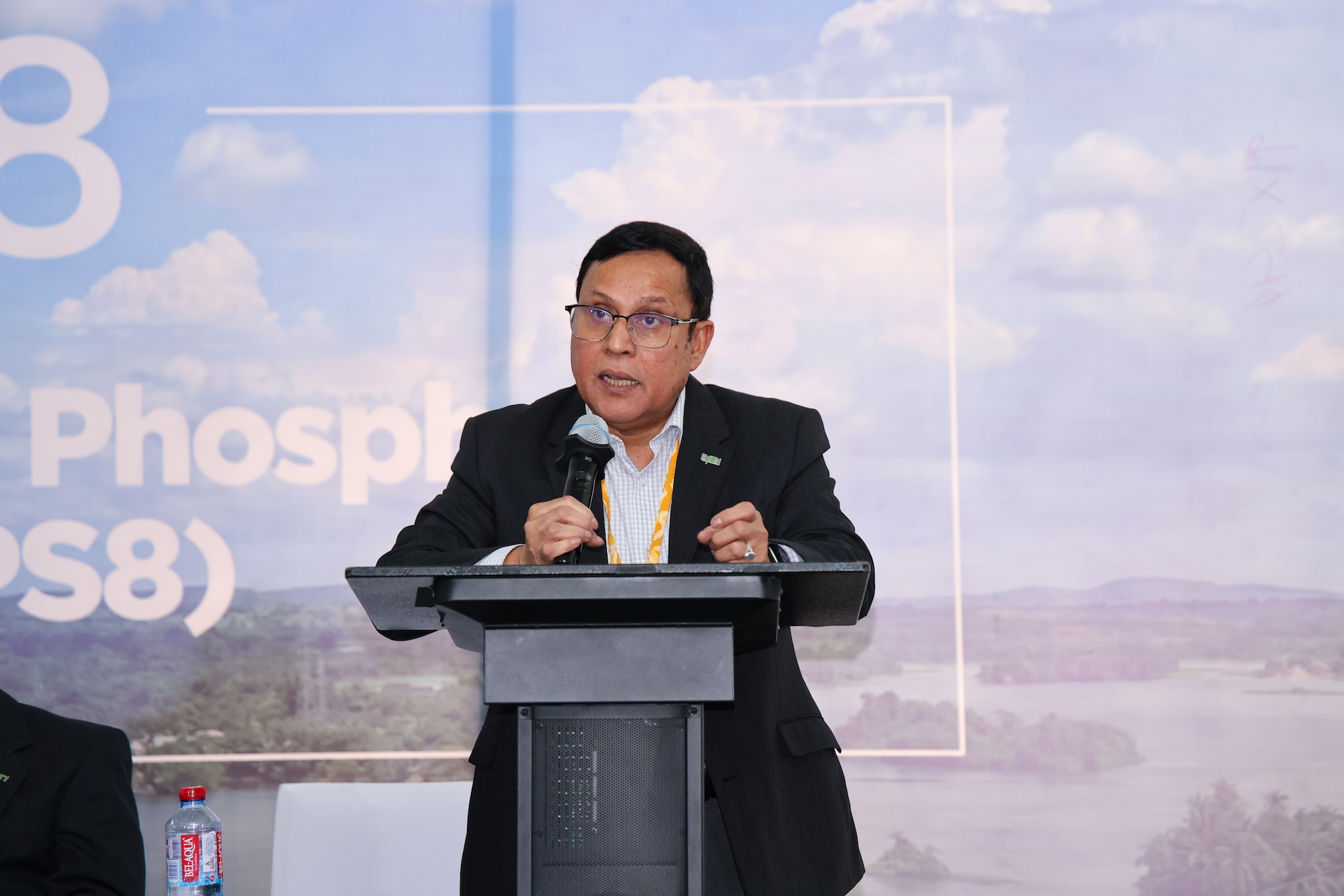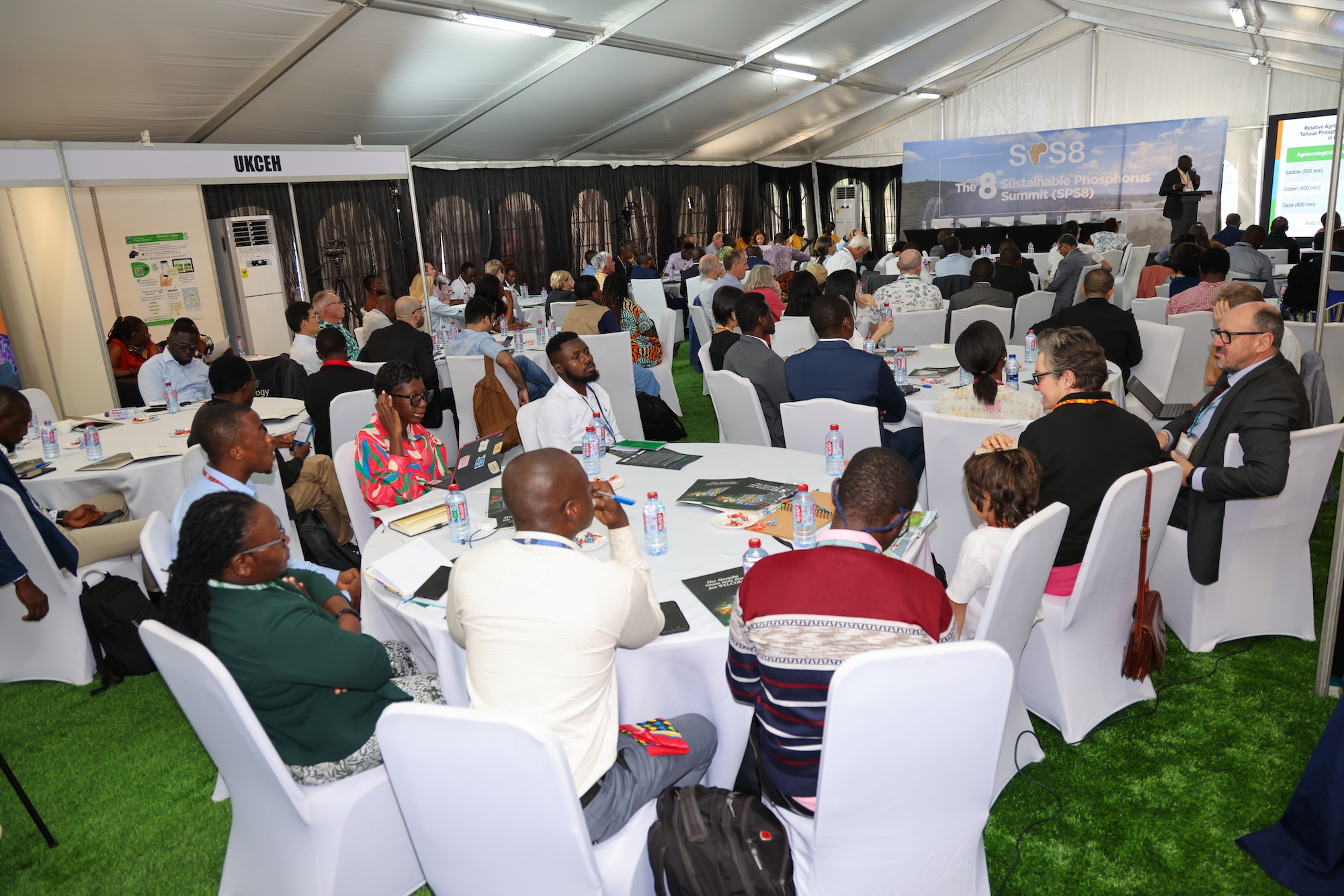SPS8 Post Conference Update: Innovations as Key Drivers of Sustainable Phosphorus Management
Post Conference Media Release
APNI Session at the recent 8th Sustainable Phosphorus Summit in Accra, Ghana highlights supply and value chain innovations as key drivers of sustainable phosphorus management.
The 8th Sustainable Phosphorus Summit (SPS8), held from September 30 to October 3, 2025, in Accra, Ghana, marked a significant milestone for Africa, as it hosted the global event for the first time. Africa, home to vast phosphate reserves and a rapidly expanding agricultural sector, is uniquely positioned to lead the next generation of innovation in phosphorus (P) management. Stakeholders recognized the continent’s growing role not just as a resource hub, but as a thought leader in building resilient, sustainable agricultural systems that can support both regional and global food security.
A special session organized by the African Plant Nutrition Institute (APNI) on October 2nd, titled “Enhancing Global Phosphorus Efficiency Along the Mining-Use-Recovery Pathway”, gathered international experts to explore science-based solutions for supporting long-term sustainable phosphorus management.

Dr. Kaushik Majumdar, APNI Director General, addressing participants at APNI-SPS8 Session session on Enhancing Global Phosphorus Efficiency Along the Mining-Use-Recovery Pathway.
Phosphorus deficiency was identified as one of the most severe constraints on crop yields across the continent. As Dr. Kaushik Majumdar, APNI Director General, explained, “Phosphorus is extremely deficient in African soils, and the effect is reduced crop yield, often 30 to 40 % of what farmers could produce. This not only increases risks for hunger and malnutrition but also reduces farm profitability and livelihood opportunities.”
Dr. Shamie Zingore, APNI R&D Director, warned of the long-term consequences of underuse, stating, “We are mining five kilograms of phosphorus every year from each hectare of cropland. This leads to declining soil fertility, lower crop production, and continued land degradation.” He stressed that reversing this trend requires not only better access to affordable fertilizers but also the right knowledge and tools for applying them efficiently.
Central to the discussion was the need to scale up the use of 4R Nutrient Stewardship, a science-based framework that guides farmers in applying the Right source of fertilizer, at the Right rate, at the Right time, and in the Right place. This approach improves crop nutrient uptake, minimizes nutrient losses to the environment, and ensures farmers see a return on their investment. As Dr. Rob Mikkelsen, Professor of Soil Science, North Carolina State University, explained, “There’s really no replacement for phosphorus. If it’s missing, we must add it for the plants to grow. That’s why it’s essential to apply it correctly, so it reaches the crop and delivers the value that farmers need.”
Adding a broader systems perspective, Dr. Gerald Steiner, Professor at Danube University Krems and Co-Chair of the Transdisciplinary Laboratory for Sustainable Mineral Resources, emphasized the global and interconnected implications of phosphorus use. He stated, “Phosphorus is an issue for food security at a global level, and its use has a very strong impact on the future development of Africa’s coupled system of nature, agriculture, and society.”
Addressing the supply and distribution challenge, Dr. Mostafa Benzaazoua, Professor, Mohammed VI Polytechnic University, Benguérir, Morocco, highlighted the geographic disconnect between North Africa and tropical regions, where demand is high. “Phosphate is mainly produced in North Africa, but that’s not where most of the arable land is,” he noted. “The real need is in tropical regions. To solve this, we need to develop local industries to process and distribute fertilizer where it’s most needed.
The session concluded that increasing P efficiency is not only key to closing yield gaps but also to safeguarding soils and building climate resilience. With improved access, regional investment, and wider adoption of 4R practices, Africa can lead in transforming P use towards long-term agricultural and environmental sustainably.
###
More about APNI and the SPS8 Special Session
Website: https://www.apni.net/SPS8
APNI is a not-for-profit research and development institute headquartered in Benguérir, Morocco, with the mission of enhanced plant nutrition for a resilient and food-secure Africa. The Institute works to develop and promote sustainable plant nutrition management practices and innovation through research, education, and outreach and has active programs across Africa.
More about SPS8
Website: https://www.upcyclelakes.org/sps8africa
SPS8 is convened by The Council for Scientific and Industrial Research (CSIR) – Ghana, The UK Centre for Ecology & Hydrology West Africa Office, Lancaster University, and Rothamsted Research. CSIR leads a Local Organizing Committee, with support from our International Expert Working Group.

